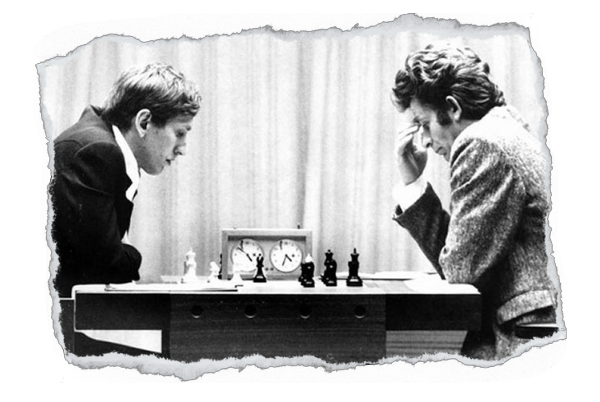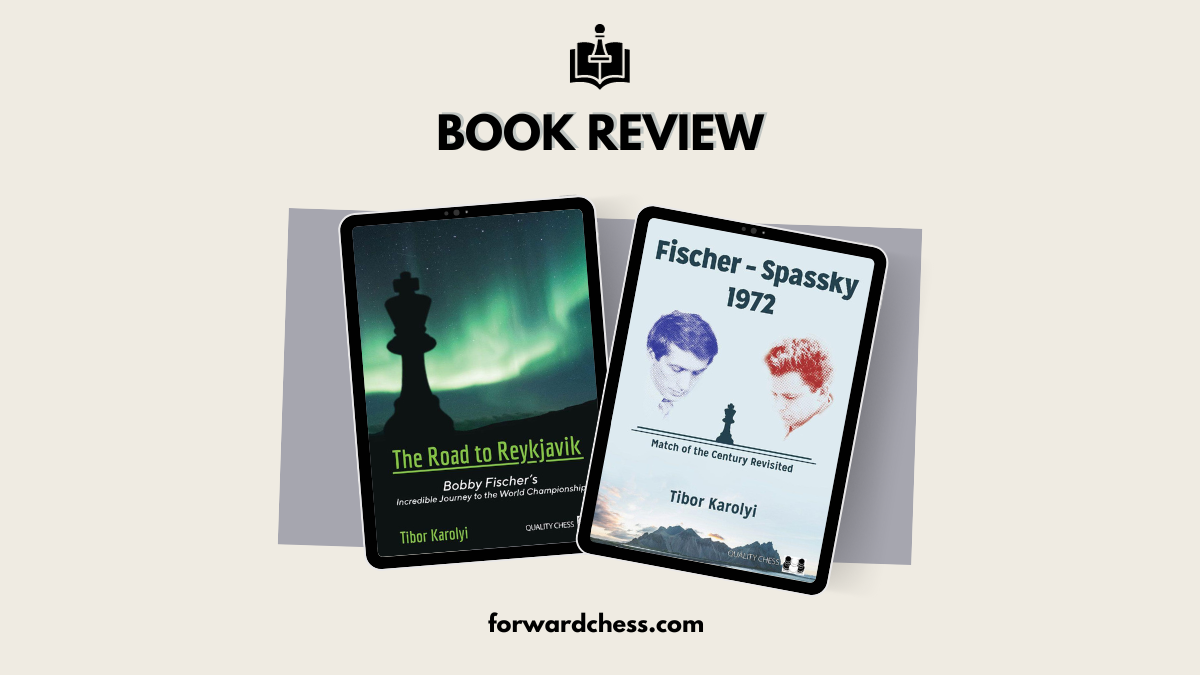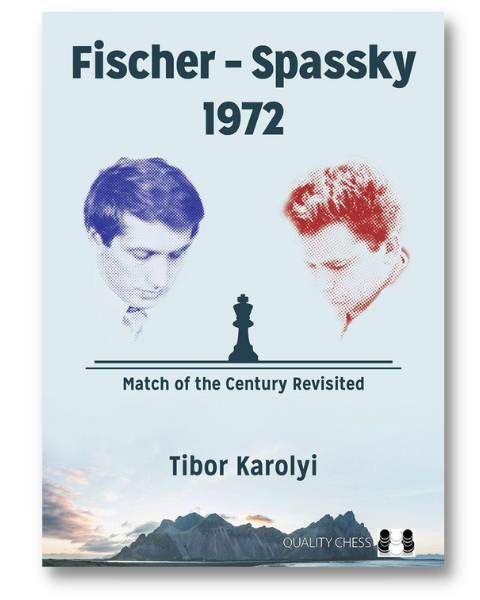Review of The Road to Reykjavik and Fischer – Spassky 1972
“When I was eleven, I just got good.” – Bobby Fischer.
The year 2022 was the 50th anniversary of the Fischer-Spassky World Championship match, a match that created enormous media interest in chess, with the match being front-page news in many major newspapers around the world. The huge media interest was due to the amazing run of successes by Bobby Fischer prior to the match, and the geo-political background of the Cold War between the USA and USSR. Fischer became the most famous chess player ever after the 1972 match.

The author of the two books, IM Tibor Karolyi, quotes an amusing incident that illustrates Fischer’s fame:
‘In the late nineties Hungarian IM Janos Rigo drove Fischer to Germany via Austria and at the border control the official asked for their passports. Rigo asked the controller whether he knew who was in the back seat of the car, and after a quick glance the man replied: “The world chess champion.”’
Fischer’s convincing win in the 1972 match seemingly heralded a long reign for him as champion, but it was not to be. Fischer turned his back on chess and did not play another tournament game until his 1992 rematch with Spassky. He then stopped playing again, and sadly did not play professionally again for the rest of his life. So, all we have left after 50 years is his legacy of dominant performances leading up to and including the 1972 match, and the somewhat anticlimactic rematch, where it was clear that Fischer, although still very strong, was past his peak. Unfortunately, time doesn’t stand still for anyone, as all the world champions have inevitably discovered.
The two books cover Fischer’s entire career. The Road to Reykjavik covers Fischer’s career up to the 1972 match, while Fischer – Spassky 1972 covers the 1972 and 1992 matches. The latter book includes a discussion of the extensive preparations made by many of the Soviet chess elite to help Spassky in the 1972 match.
The author acknowledges and references the previous vast literature on Fischer, notably Kasparov’s and Hübner’s analyses. However, he has made extensive use of the latest super-strong chess engines and endgame tablebases, and this has enabled him to go beyond, and often correct, previous analysis. Indeed, both books include a lot of new discoveries in many of Fischer’s most famous games. While the ‘ultimate truth’ of Fischer’s games may still not be possible, the author’s analysis is closer to this goal than the previous analysis.
The search for the truth means that the analysis is very detailed in parts. Thankfully, the author has provided enough lighter analysis and verbal commentary to balance the detailed computer-generated lines. In addition, it is possible to skip some of the heavier analysis and simply enjoy Fischer’s genius. Both books also include a lot of background material on the games and the two matches against Spassky, and reminiscences of many players who interacted with Fischer during his career. Fischer’s phenomenal memory is a constant theme. The author quotes Forintos:
“I was slightly worried that he would behave awkwardly, but it was nice to analyse with him. Interestingly, in the nineties, I went to the Komjady swimming pool in Budapest and to my surprise I met him. He remembered everything about our game [in Monaco, 1967], clearly more than I did.”
Two examples from the books are given below, with annotations from the books.
In summary, these two books are quite simply superb. The print editions of the books total around 950 pages, which is a clear indication of their scope and depth. The author has done an amazing amount of research and provides a detailed study of Fischer’s games. The result is a fitting tribute and memorial to the American chess genius.
Have any thoughts or questions? Let us know in the comments!
- New Release: Chess Analysis – Reloaded - March 9, 2024
- Review: The Art of The Endgame – Revised Edition - February 14, 2024
- Review: Study Chess with Matthew Sadler - December 13, 2023


